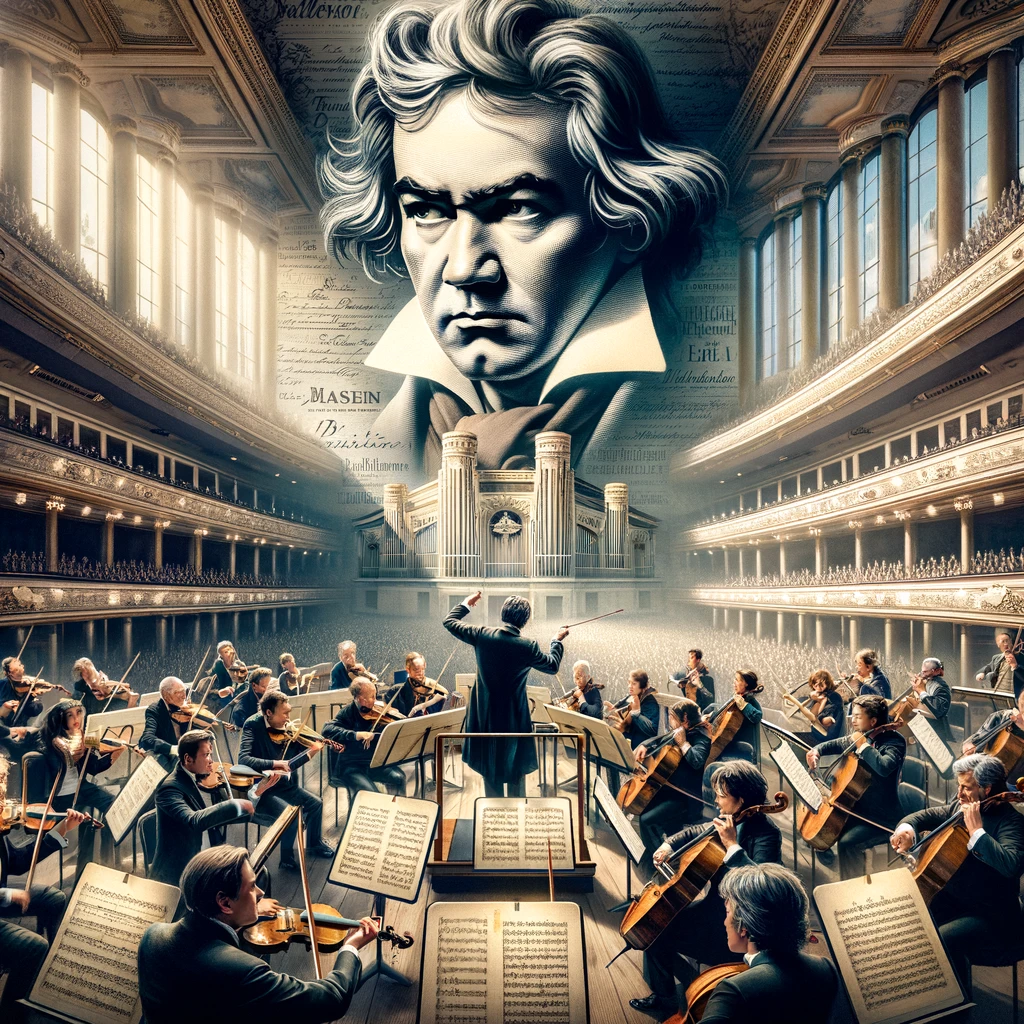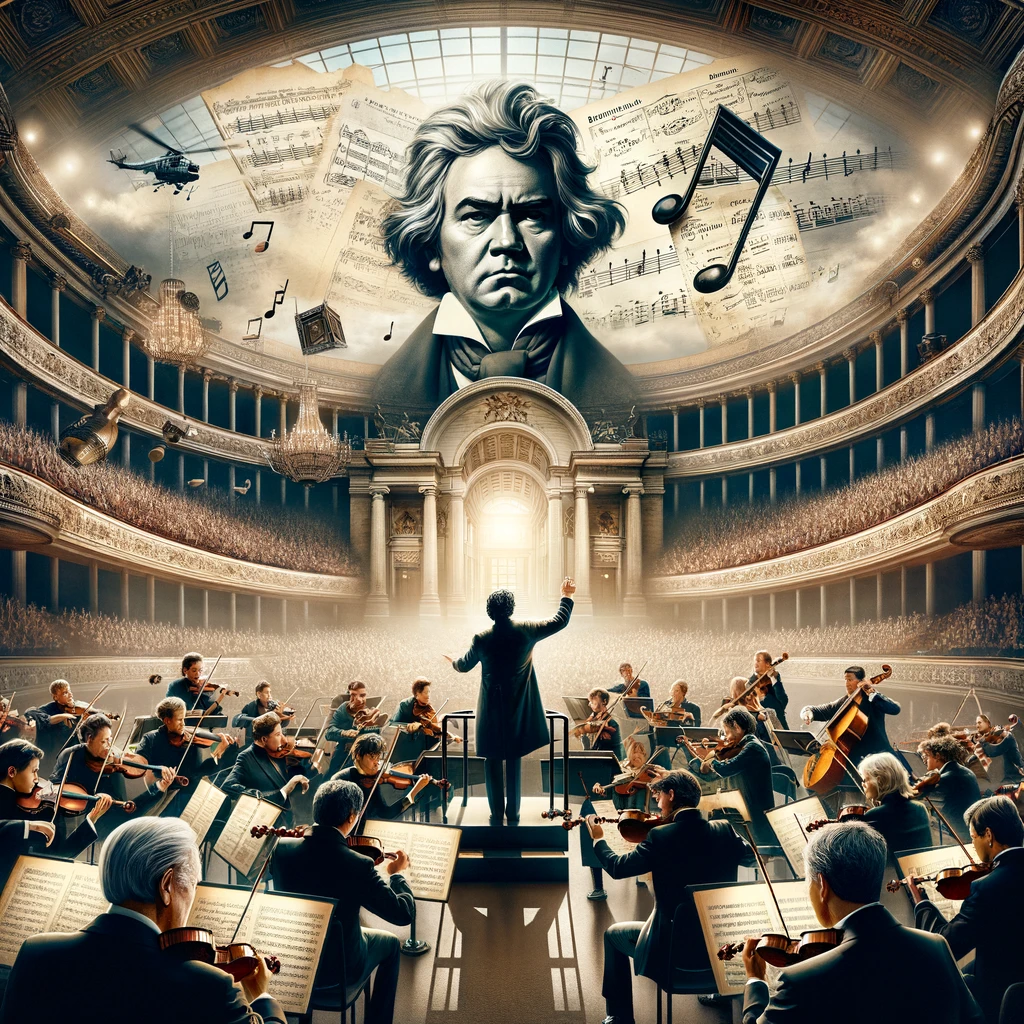
The Berlin Philharmonic’s Legacy with Beethoven’s Works
Ludwig van Beethoven is one of the most revolutionary figures in the history of classical music. Born in 1770, Beethoven’s works have transcended time, continuing to inspire musicians and captivate audiences centuries after they were composed. Among the many orchestras that have performed Beethoven’s masterpieces, the Berlin Philharmonic stands out for its exceptional renditions and recordings. This article delves into the life and history of Beethoven with a special focus on how the Berlin Philharmonic has preserved and celebrated his legacy through historic performances and recordings. From the nuances of his symphonies to the emotional depth of his concertos, the Berlin Philharmonic has brought a unique vigor and interpretation to Beethoven’s compositions that resonate deeply with both seasoned enthusiasts and new listeners.
Early Life and Musical Beginnings
Ludwig van Beethoven was born in Bonn, Germany, and showed prodigious talent from a young age. His father, Johann, recognized his potential and began to nurture his musical skills, albeit often through harsh methods. By the age of 12, Beethoven was already composing and performing, showing a remarkable grasp of the piano and the violin. While his early instruction came from his father, he later studied with notable musicians such as Christian Gottlob Neefe, who introduced him to the works of Bach and Mozart. His burgeoning talent soon earned him a place in the court orchestra, where he further honed his skills. Moving to Vienna at the age of 21 was a pivotal moment for Beethoven, as it placed him at the heart of the European music scene. Under the mentorship of Joseph Haydn, he started to develop his distinct style, blending classical forms with deep emotional expression.
Major Works and Innovations
Beethoven’s oeuvre is both extensive and transformative. Among his most notable contributions are his nine symphonies, which changed the scope of what symphonic music could achieve. The Third Symphony, also known as the “Eroica,” was a turning point in his career, marking a departure from the classical styles of his predecessors and heralding a new era of emotional depth and complexity. His Fifth Symphony is arguably one of the most recognizable pieces of classical music, with its iconic four-note motif. Besides his symphonies, Beethoven’s piano sonatas and string quartets also stand out for their innovation and emotional range. Works such as the “Moonlight Sonata” and “Für Elise” remain staples in the repertoire of pianists around the world. Beethoven’s ability to infuse his music with personal struggle and triumph set a new standard for what music could express, making him not just a composer, but a pioneer.
The Berlin Philharmonic’s Interpretation
The Berlin Philharmonic, founded in 1882, is one of the most prestigious orchestras globally. It has an illustrious history of interpreting and performing Beethoven’s works. Conductors like Herbert von Karajan, Claudio Abbado, and Sir Simon Rattle have led the orchestra in landmark performances that have set standards for interpreting Beethoven. Karajan’s recordings of all nine symphonies in the 1960s, for instance, are considered definitive interpretations, praised for their clarity, precision, and emotional intensity. The Berlin Philharmonic’s approach to Beethoven often emphasizes a blend of technical mastery and expressive depth, aiming to capture both the structural genius and the emotional nuances of his compositions. Their performances and recordings are celebrated for their ability to bring new insights into Beethoven’s music while remaining true to his original vision.

Historic Recordings
The Berlin Philharmonic’s legacy with Beethoven’s works is particularly well-documented through its recordings. Herbert von Karajan’s mid-20th-century recordings of Beethoven’s symphonies are especially renowned. These recordings, made with state-of-the-art technology at the time, have been pivotal in bringing Beethoven’s music to wider audiences and preserving his legacy. Karajan’s interpretation of the Ninth Symphony, featuring the “Ode to Joy,” is often hailed as one of the greatest recordings ever made. More recent recordings under Simon Rattle have also received critical acclaim, with particular praise for their fresh and dynamic approach. These recordings not only serve as historical documents but also as benchmarks for both performance and recording quality, offering listeners a chance to experience Beethoven’s music in its full glory.
Influence on Contemporary Performance
The Berlin Philharmonic’s interpretations of Beethoven have had a far-reaching influence on contemporary classical music performance. Their meticulous attention to detail and commitment to honoring Beethoven’s compositions have set high standards for orchestras worldwide. The orchestra’s innovative use of technology in recording also paved the way for modern advancements in how classical music is produced and consumed. Moreover, the Berlin Philharmonic’s educational outreach programs and masterclasses frequently focus on Beethoven, ensuring that new generations of musicians grasp both the technical and emotional components of his works. Through live performances, recordings, and educational initiatives, the Berlin Philharmonic continues to shape how Beethoven’s music is perceived and appreciated in the 21st century.
Conclusion
The Berlin Philharmonic’s legacy with Beethoven’s works is a testament to the timeless appeal of this legendary composer’s music. From their historic recordings to their transformative live performances, the orchestra has played a crucial role in preserving and reimagining Beethoven’s contributions to classical music. Their interpretations, led by some of the greatest conductors of the 20th and 21st centuries, have brought new dimensions to Beethoven’s compositions, captivating audiences around the globe. As Beethoven’s music continues to inspire and resonate, the Berlin Philharmonic’s dedication ensures that his legacy will endure for generations to come. For anyone seeking a profound and enriching experience of Beethoven’s music, the Berlin Philharmonic’s performances and recordings are an essential destination.